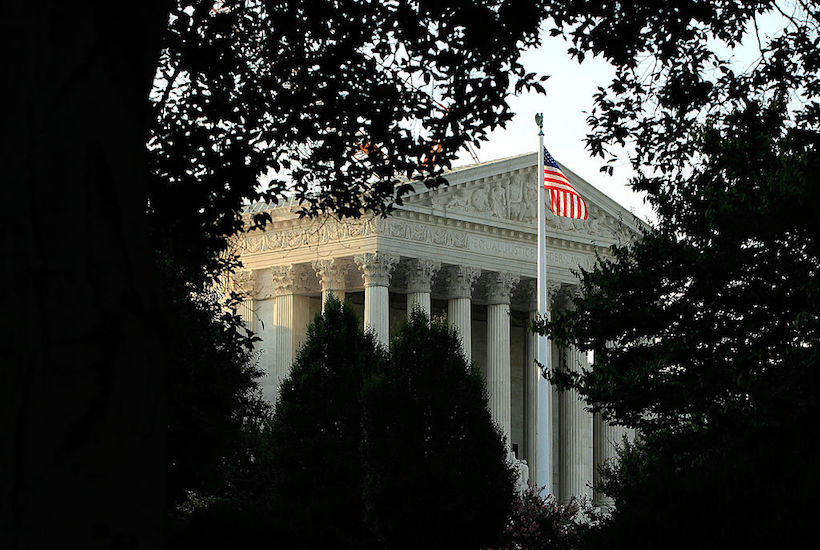It appears the United States Supreme Court has snuffed out Donald Trump’s last chance to save his Presidency. This is ironic since probably Trump’s most important legacy is the current composition of the Court. It will almost certainly be his most enduring one.
The US State of Texas lodged a lawsuit with the Supreme Court against the States of Wisconsin, Pennsylvania, Georgia and Michigan on the grounds that they altered electoral rules in contravention of the Constitution, which gives legislatures the power to make electoral rules, not State judiciaries or officials. A number of other States joined the Texas action. The underlying logic of their case would be that unconstitutional actions on the part of one state, that affect the overall result of the election, have consequences for the other states. That logic seems, to me, unassailable.
In fact, this lawsuit could have been foreseen because, before to the election, the Republican Party legislators in Pennsylvania had petitioned the Supreme Court to overturn the new election rules gazetted in that State on the exact same grounds argued by Texas. Judge Alito ruled that the Court would not expedite a hearing in that case but also ruled that ballots collected under the new rules were to be kept segregated. Clearly, he foresaw a post-election challenge.
The Texas case was dismissed in very short order on the grounds that Texas did not have legal standing under Article III of the US Constitution. The relevant portion of Article III is as follows:
The judicial Power shall extend to all Cases, in Law and Equity, arising under this Constitution, the Laws of the United States, and Treaties made, or which shall be made, under their Authority;—to all Cases affecting Ambassadors, other public Ministers and Consuls;—to all Cases of admiralty and maritime Jurisdiction;—to Controversies to which the United States shall be a Party;—to Controversies between two or more States;—between a State and Citizens of another State;—between Citizens of different States;—between Citizens of the same State claiming Lands under Grants of different States, and between a State, or the Citizens thereof, and foreign States, Citizens or Subjects.
I’m not a lawyer but it would seem to me that the bolded words would have allowed the Court to find that Texas had standing – there is little scope for nuance in those words. Two dissenting judges, Alito and Thomas, obviously thought so.
So why didn’t the remaining conservative judges, Gorsuch, Kavanaugh and Coney-Barrett, agree? These are the three appointed by Trump, to his great credit. Now I’m not saying that because they owed their appointment to Trump that they owed him any judicial loyalty. We would expect them to rule objectively according to the letter of the law, particularly Coney-Barrett as she made such a point of this in her confirmation hearings. In fact, as far they are concerned, secure on the Court for life, I’m sure they believe Trump’s work is done.
But, on the other hand, it would be unconscionable if they were to rule against Trump simply on the grounds that it would give an impression of favouritism or gratitude. To avoid that charge they could have recused themselves, which would have resulted in a ruling of four to two against hearing the case. That would have put a much more acceptable face on the defeat for the Trump rather than the humiliation that seven to two inflicted.
But that is not what I think is happening here. I think the Court is conscious that if anything were to occur that would overturn the putative result, all hell would break out in the States, the likes of which would put this year’s BLM riots in the shade.
The Supreme Court would, understandably, not wish to be saddled with the opprobrium that would attend such a result and would fear that the status or standing of the Court could be brought into disrepute. Perhaps they chose not to hear the case because they were afraid they would have to find in favour of Texas. On the other hand, they know the vast majority of Trump supporters will cop it on the chin.
But if that is what has occurred, and thecynic (realist) in me cannot shake off the feeling that it is, then the Supreme Court would have set itself up as a ‘kingmaker’ – surely anathema to any self-respecting US citizen – and would have set a very dangerous precedent.
Got something to add? Join the discussion and comment below.
Get 10 issues for just $10
Subscribe to The Spectator Australia today for the next 10 magazine issues, plus full online access, for just $10.


























Comments
Don't miss out
Join the conversation with other Spectator Australia readers. Subscribe to leave a comment.
SUBSCRIBEAlready a subscriber? Log in